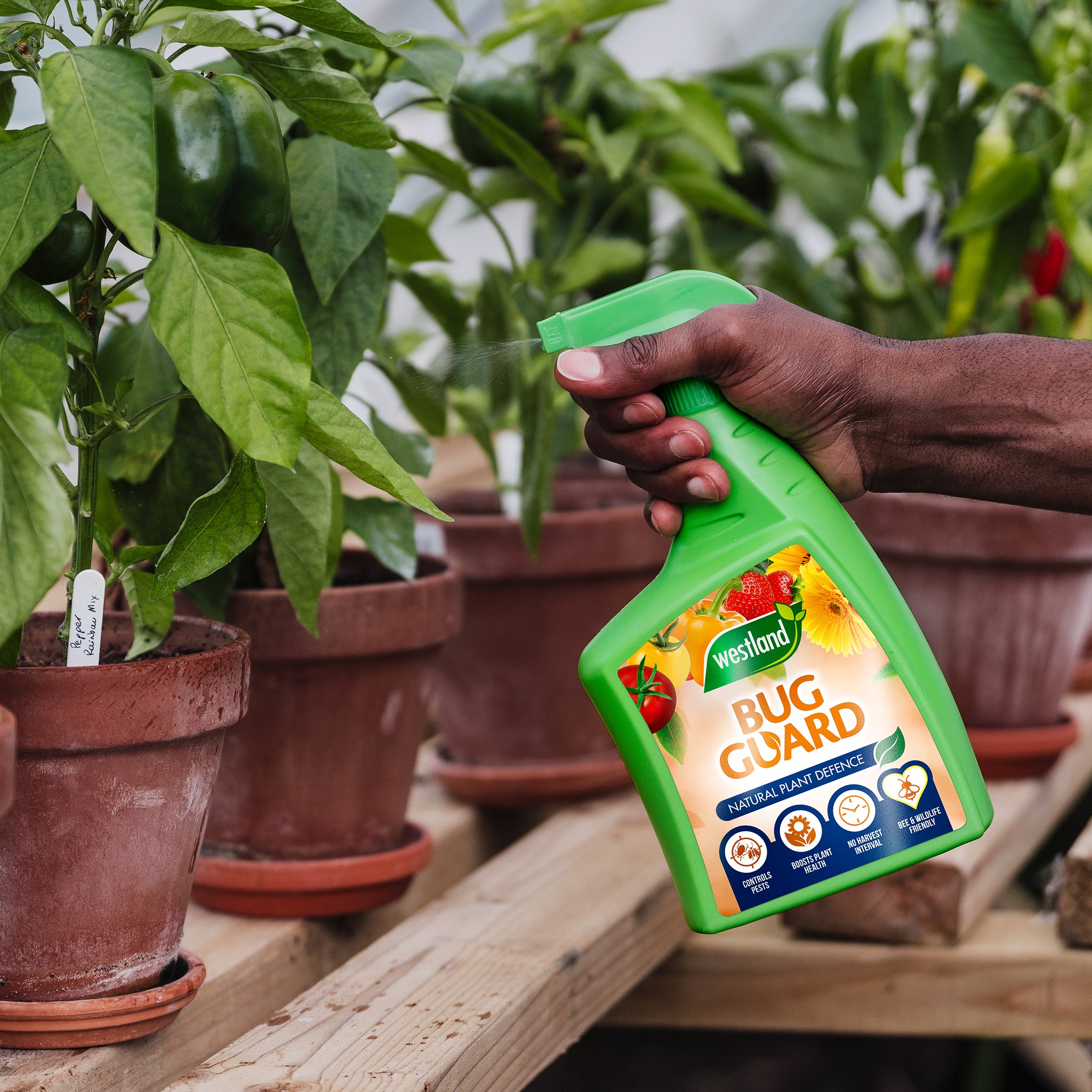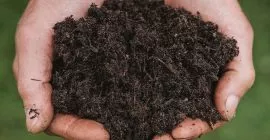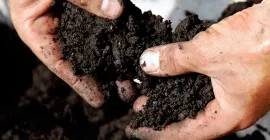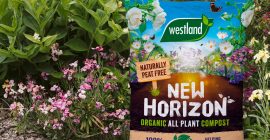In recent years, eco-friendly or green gardening has emerged as a growing trend among garden enthusiasts and environmentalists. By embracing sustainable practices, gardeners can create beautiful, thriving outdoor spaces while minimising their impact on the planet. Green gardening offers a perfect solution if you want to reduce your environmental footprint. Here’s how you can make your garden both gorgeous and green.
Benefits of Green Gardening
Adopting green gardening practices not only enhances the beauty of your outdoor space but also contributes to a healthier environment. Key benefits include:
- Reduced Carbon Footprint: By using fewer chemicals, conserving water, and incorporating native plants, you can significantly lower your garden’s environmental impact.
- Improved Soil Health: Natural fertilisers and no-dig techniques enhance soil structure and fertility over time.
- Support for Pollinators and Wildlife: Creating habitats for bees, butterflies, and birds helps maintain biodiversity and supports local ecosystems.
Peat Free Composts
Going peat free is a top priority for gardeners. According to the Royal Horticultural Society, the planet’s 10 billion acres of peat bogs store more carbon than the world’s forests combined, helping in the fight against climate change. Switching to peat-free compost alternatives is easy, and quality compost blends such as New Horizon will perform as well as peat. Modern peat free composts contain more sustainable ingredients such as wood fibre, coir and composted bark. These have been carefully adapted to provide optimum growing conditions. Look out for bags that are clearly labelled peat-free. Westland have a wide range of peat free composts available, for whatever your gardening task.
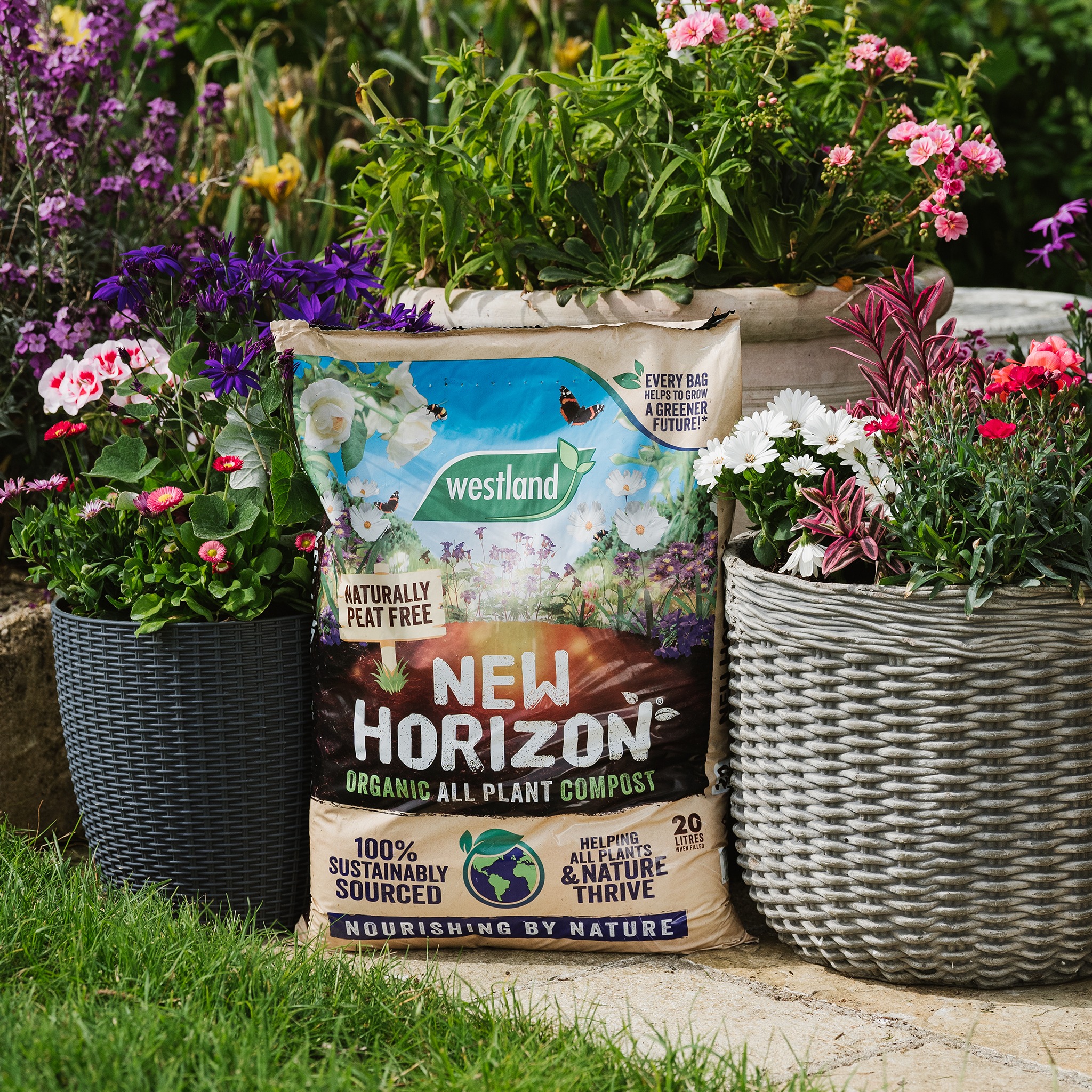
Saving Water
Water conservation is a key aspect of eco-friendly gardening. Incorporate water-saving strategies to maintain a lush garden while reducing water waste.
- Rainwater Harvesting: Install water butts to collect and store rainwater for later use in the garden.
- Drip Irrigation: Use drip irrigation systems to deliver water directly to the roots of plants, minimising evaporation and runoff.
- Mulching: Mulch helps retain soil moisture, reducing the need for frequent watering.
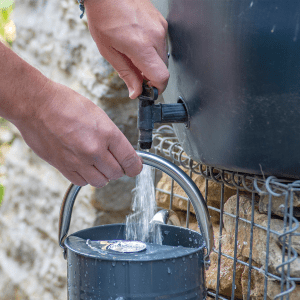
Create a Wildflower Area
Wildflowers are a magnet for bees, beneficial insects, and butterflies – and you don’t need to own a meadow to marvel at their magic. A small patch of soil or a large container is ideal for introducing nectar-rich blooms that will help in the battle against pollinator decline. Depending on your chosen seed mix, you can sow wildflower areas in either spring or autumn. There are blends available to suit different soil types. Transforming a tired lawn area into a wildflower area will increase your garden’s biodiversity. It is also the ultimate in low-maintenance gardening, too.

Hundreds of favourite blooms will lure pollinators in their droves. Snowdrops, alliums, foxgloves, hollyhocks, lavender, and buddleja are just a handful of bee or butterfly-friendly flowers. Look out for the RHS Plants for Pollinators logo when choosing plants at garden centres. The secret of success when planting bee-friendly pots and borders is to select single flowers (as opposed to fully double blooms), where insects can easily access nectar and pollen. Ever-popular Dahlia ‘Bishop of Llandaff’ is a classic example of a dahlia that bees adore.
Home Composting
Composting is nature’s very own way of recycling and the cornerstone of greener gardening. You can do this by transforming garden waste into a homemade soil improver, so expand your composting area if you have space. While you can buy composting bins, bigger heaps work best – consider using old pallets to make a giant composter. Site compost bins in light shade and fill with a mix of brown waste (leaves, hedge trimmings, and ripped-up cardboard) and green waste (spent veg plants, annual flowers, and grass clippings). Use a home composter like Garotta which will help speed up the process and make better quality compost too.
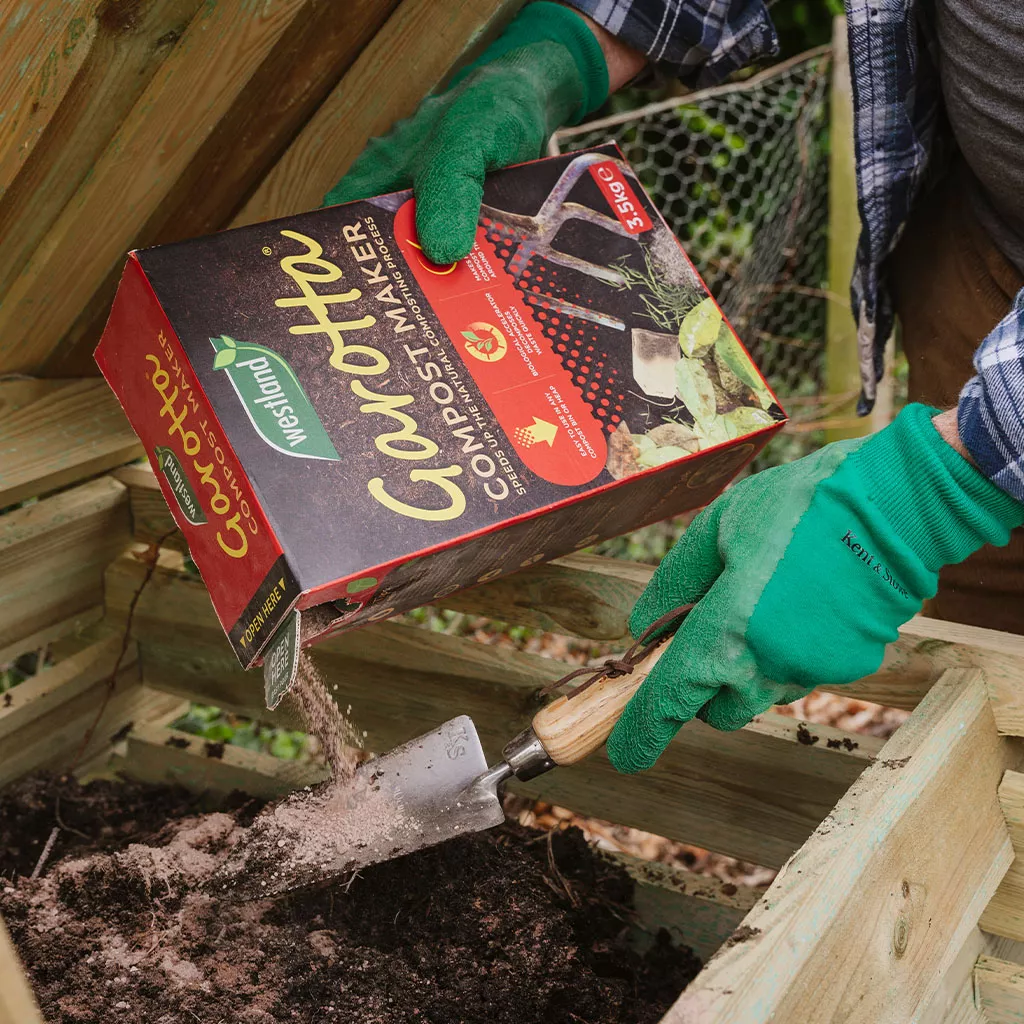
Don’t let heaps dry out too much and use a garden fork to turn the contents regularly. Don’t be too tidy! That’s the golden rule for creating a healthy ecosystem in your garden.
Find out more about how to home compost here.
Helping Wildlife
Another part of greener gardening is allowing an area of grass to grow long, especially around garden boundaries. This will provide hideaways for hedgehogs that love to feast on slugs. You can even buy a hedgehog house that helps hedgehogs keep warm during the colder months by providing them with a safe shelter. It will also blend in nicely with the surroundings.
A simple log pile will attract insects that set up home in decaying wood, providing a natural food source for wild birds. Insect hotels are increasingly popular, luring solitary bees, aphid-devouring lacewings, and beneficial insects.
- Birdhouses and Feeders: Attract birds by installing nest boxes and providing seeds, fruits, or suet.
- Wildlife Ponds: A small pond or water feature can support frogs, insects, and even small mammals.
- Hedgerows and Log Piles: Offer shelter for hedgehogs, toads, and other creatures by creating natural hiding spots.
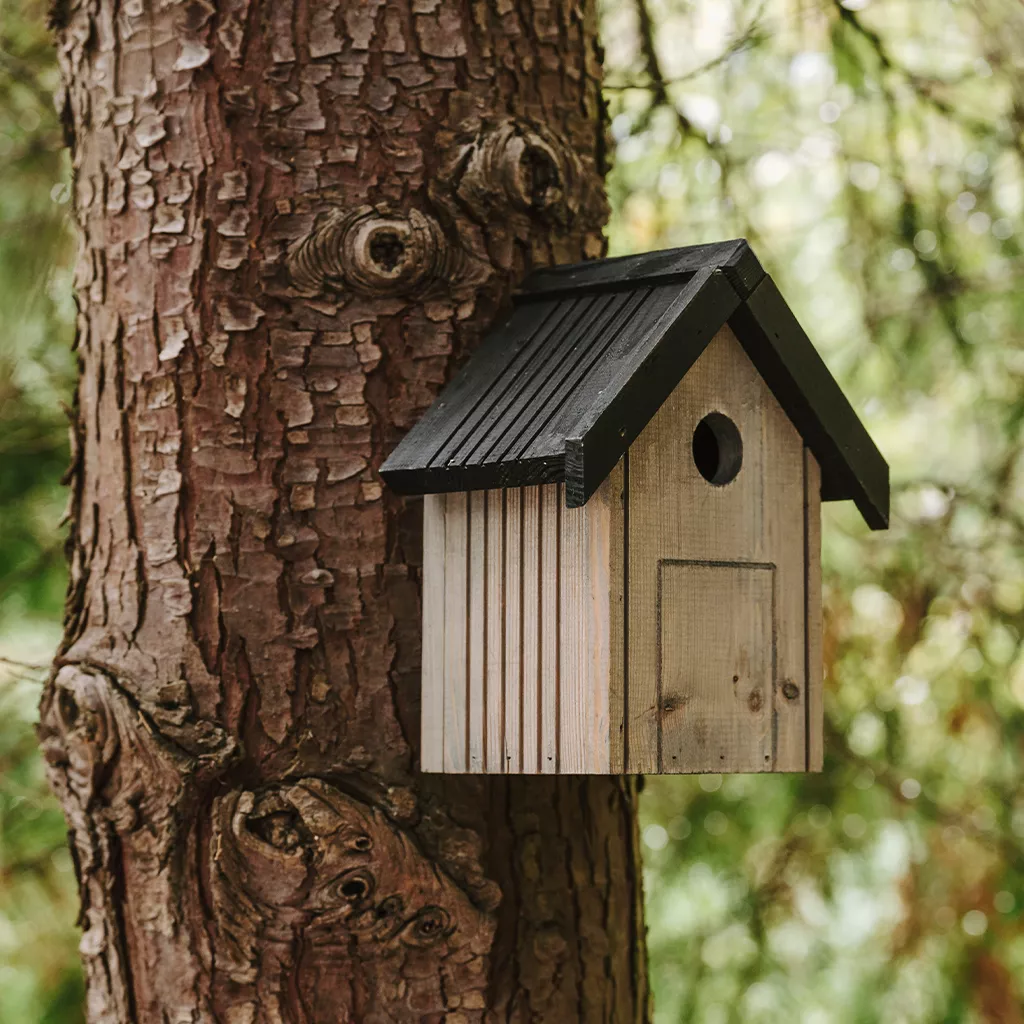
Grow Your Own
Growing your food is fun, and rewarding and can cut food miles to footsteps, which is so much better for the environment. Even in tiny gardens, pots, grow bags, vegetable growing tables, and raised beds can yield a bumper harvest. Tomatoes, runner beans, potatoes, carrots, and lettuce are easy to grow for beginners; they can be cultivated without the use of pesticides; their taste is normally superior to shop-bought produce; and unlike most supermarket veg, they do not come wrapped in single-use plastic. Make sure you use a good compost suitable for growing veg and feed your crops with an all purpose feed like Boost to give you a big harvest.

Fewer Chemicals
Cutting down on chemicals is another part of greener gardening and key to building a healthy ecosystem. You can blast sap-sucking insects from plants using a hose pipe – or watch ladybirds devour aphid infestations naturally. You can also use pesticide free sprays like Westland Bug Guard that controls pests and boosts plant health whilst posing no harm to bees and wildlife. To deter slugs from your plants use organic products like Growing Success Organic Slug pellets. These are an effective way of preventing slugs and snails from damaging precious plants and crops, without the need for pesticides.
Try growing a ‘sacrificial plant’ such as nasturtium, which will lure aphids away from your prized plants. Pair plants that naturally deter pests, such as marigolds with tomatoes or basil with peppers – this is called companion planting.
Instead of using chemicals to kill weeds, try hand-weeding, or suppressing weed growth using mulch, which is a sustainable alternative to weedkillers.
